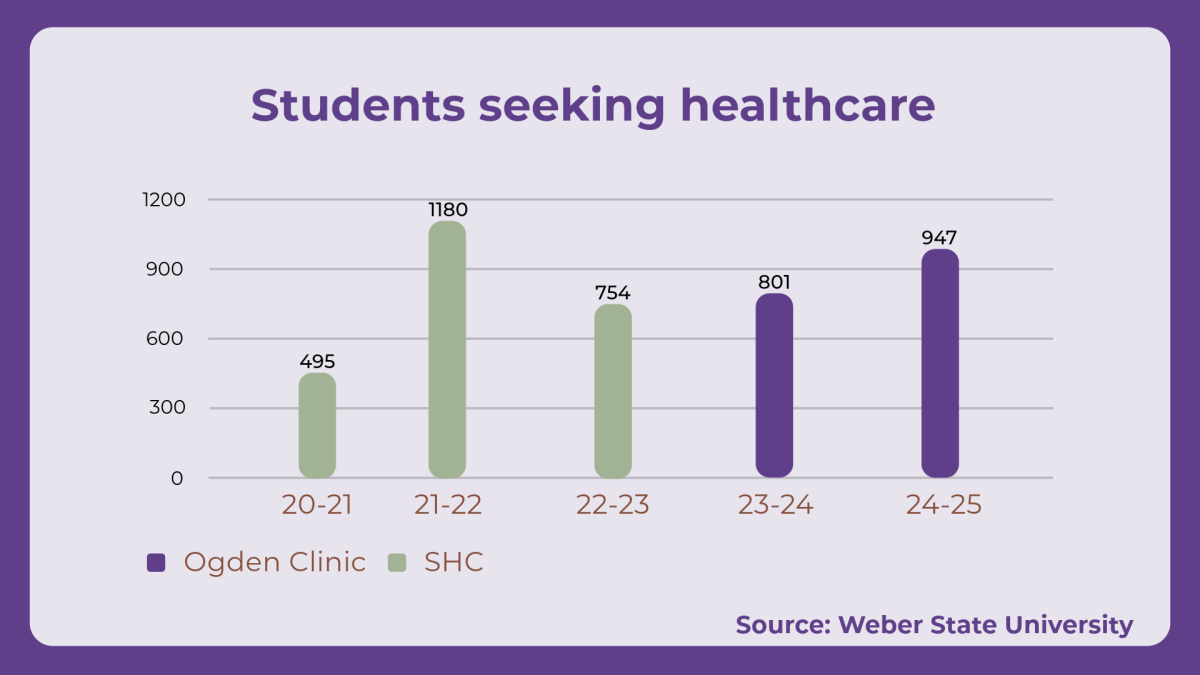
Weber State University faculty and students are wearing fitness trackers to measure their exercise and diet.
Fitness trackers are popular devices that keep track of a person’s movement. The statistics that are tracked include steps, distance, calories burned and sleeping data.
The latest versions of wearable fitness trackers are worn around the wrist like a bracelet. The bracelets are waterproof and are made to be worn around the clock, even when asleep.
There are several competitors that make fitness devices such as the Nike Fuelband, Fitbit Flex, Garmin Vivofit and Jawbone Up. Every faculty member in the health promotion and human performance department at Weber State who uses a wearable fitness tracker uses a Fitbit.
“I love my Fitbit. (It is) first on the market, widely marketed and reasonably priced,” said Molly Smith, professor of human performance.
These devices not only track what wearers are doing, but can motivate them to do more.
“It was fun to see how active or inactive I was each day and it motivated me to be more active,” said Valerie Herzog, the graduate athletic training program director.
Each device has its own mobile app. In addition to keeping track of their own fitness, wearers can see what their friends are doing as well.
“We could all see each others’ weekly step counts, which created a fun little competition,” Herzog said.
Lauren Fowler, a professor of psychology, added that seeing others’ progress encourages her to improve as well.
Faculty members are not the only people choosing to wear fitness trackers.
“A Whole Foods gal I follow on Instagram kept posting about it, so I looked it up,” WSU student Kristin Gardiner said. Gardiner decided to purchase a Fitbit Flex because it was user-friendly, organized and it could sync with her phone.
A study published in the Journal of Science and Medicine in Sport in September validated the Fitbit’s accuracy. In the study, five participants walked on a treadmill at different speeds wearing a Fitbit. The number of steps the Fitbit recorded were accurate with the number counted by observers.
Herzog said that the only drawback to wearing a fitness tracker is its bulkiness.
“In the winter, it was sometimes hard to pull my sweater sleeve over it and it was a little uncomfortable to sleep in, because I am a side sleeper,” Herzog said.







